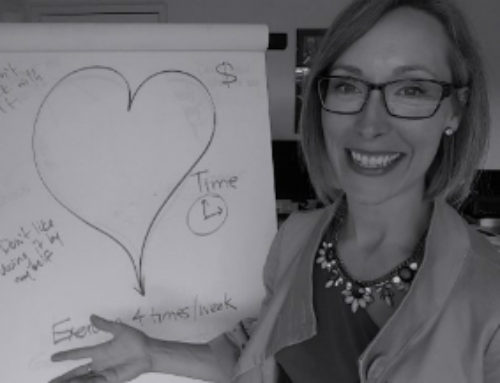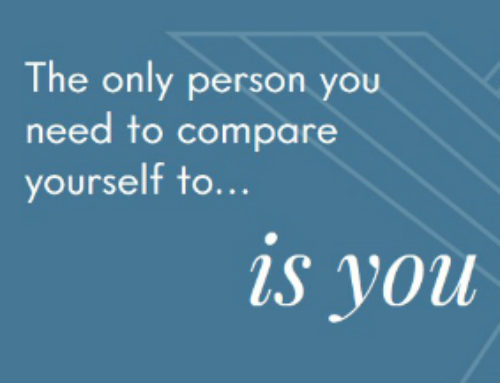If you have goals to stop procrastinating, reduce your stress, or quit losing your patience you may be setting yourself up for failure. In this blog post and video, I share how to increase your chance of reaching these and other goals by making one simple tweak.
This blog post came about thanks to a question from one of my newsletter subscribers, Amanda. She wanted to stop procrastinating with her exercise and on her business.
Words are incredibly important, and how we use them can support or sabotage our efforts to reach our goals. And after doing what I’m about to share with you, Amanda realized she was sabotaging her efforts right from the get-go, and it had everything to do with how she worded her goals.
Here is what she changed. She gave her goals a positive focus. In short, she focused on what she wanted instead of what she didn’t want.
Focus on what you want, not what you don’t want.
Giving goals a positive focus has nothing to do with looking at the world through rose-coloured glasses or being optimistic all of the time. This is about giving your mind something to focus on. Something tangible and concrete that you see and feel and possibly touch instead of something you don’t want, or wish would disappear or go away or stop happening.
The brain can’t not think about something.
For example, it can’t stop thinking about a pink elephant. Stop it! Just stop thinking about her pink tail with the pink tuft on the end and those cute, pink toenails. Stop thinking about it.
See? Your brain put a pink elephant in your brain. And that’s the last thing you wanted in there.
The same rule applies to your goals. When they’re focused on what you don’t want, you brain focuses on that:
- Stop procrastinating: the brain focuses on procrastinating.
- Reduce your stress: it focuses on stress.
- Quit losing your patience: brain focuses on losing your patience.
I assume you don’t want to focus on procrastination, stress or losing patience. So give yourself something you want to focus on instead.
For simplicity, let’s use the pink elephant example again. If you don’t want to think about a pink elephant, tell your brain what you want it to think about instead. How about a purple lion? Think about a purple lion with its purple mane, purple tongue, and piercing, purple eyes. Much easier!
Here is a question that will help to turn your goals from a negative focus (what you don’t want) to a positive focus (what you do want).
If I wasn’t ____, what would I most want to do instead?
Put the thing you don’t want in the blank.
Let’s use Amanda’s example.
Her original focus was on what she didn’t want: to stop procrastinating with her exercise.
“If I wasn’t procrastinating, what would I most want to do instead?”
Amanda’s answer:
[I would want to] “be excited to move my body, and grateful to have the limbs to do so.”
This became her new goal. And it worked really well for Amanda. Here is what she had to say:
“. . . attaching a negative word to something I want to accomplish is kind of self-limiting right off the bat and maybe even makes it a drudge to work on, but when I change my words to describe it in a way in which I would LIKE to move through the blocks then it’s kind of an opportunity thing…it really makes a huge difference when you change your mind frame and your words!”
Beware or the trickster, “I want.”
Just because you start a goal with “I want” doesn’t mean that you have worded your goal with what you actually want (that positive focus).
Here are some common examples of things that SEEM like they’re focused on what you want, but are really goals that focus on what you don’t want.
- I want to lose 20 pounds.
- I want to stop yelling.
- I want to get rid of the clutter on my desk.
- I want to reduce the hours that I’m working.
What do you want instead? Answer that, and you’re on your way to creating much better goals for yourself.
Actions to take from here
- Review your current goals.
- Re-word the negatively focused ones to have a positive focus.
- Send me your questions.
In the video, I mention an exercise that will transform your excuses into powerful actions. Here is the link to that post: https://www.erinacton.com/beautiful-buts.




